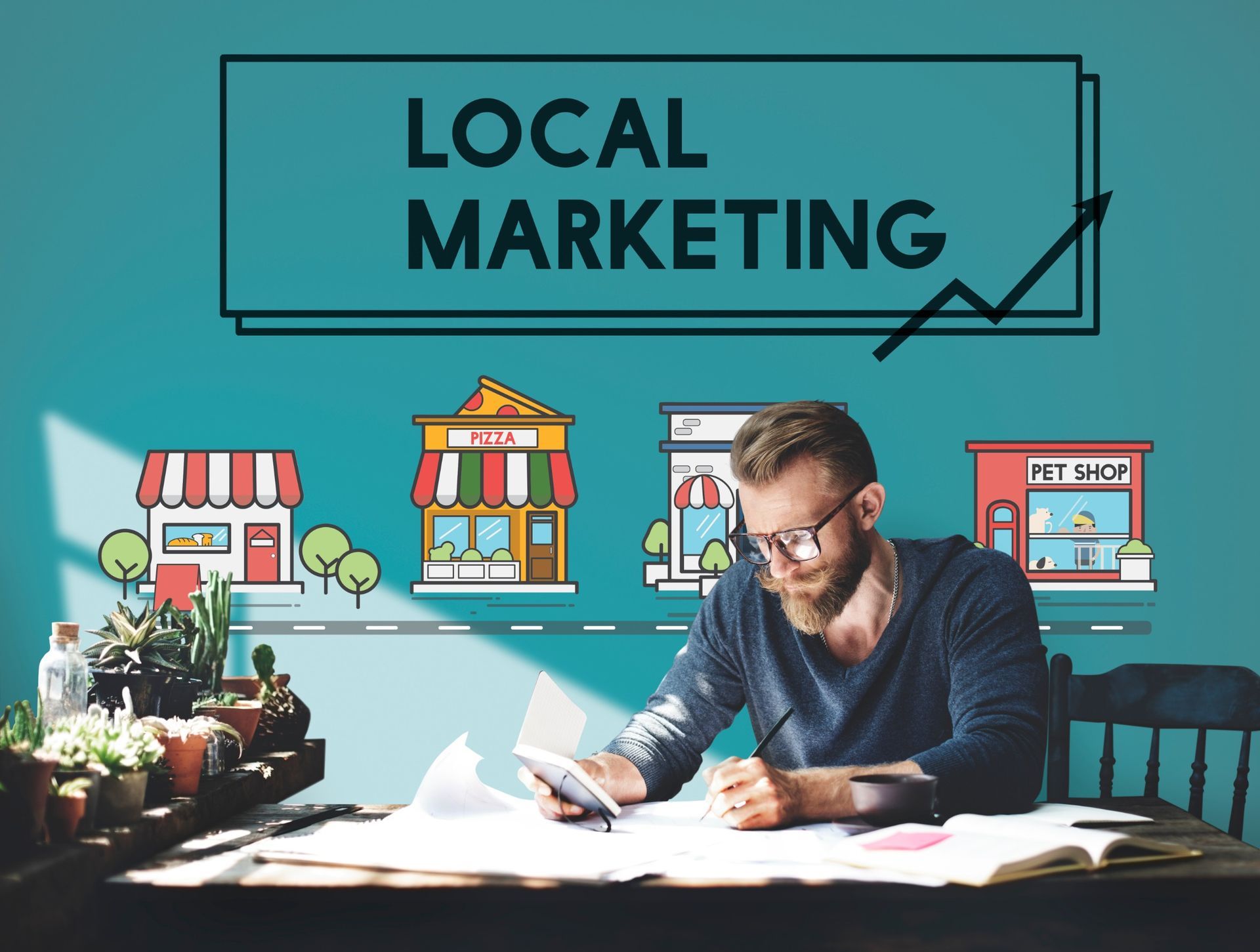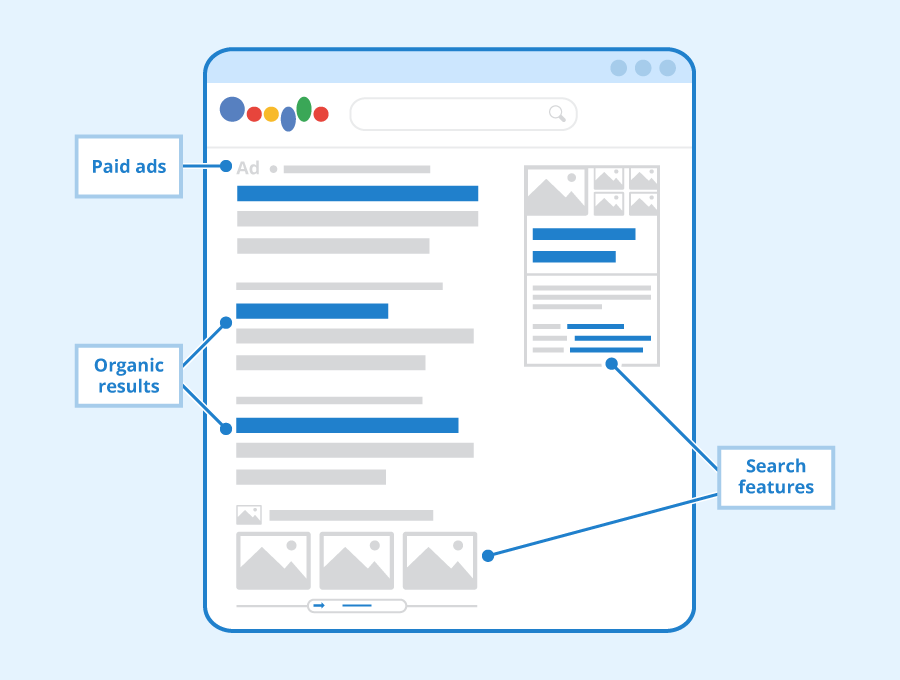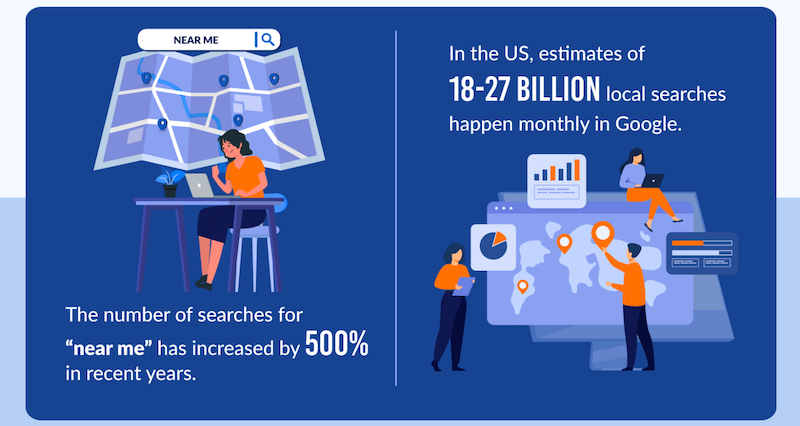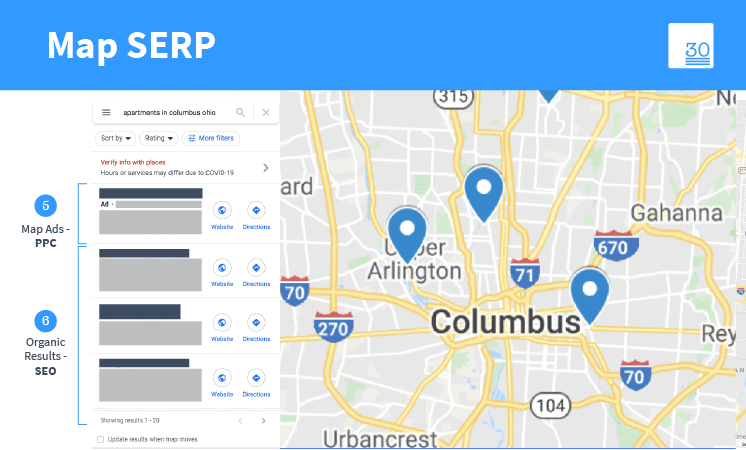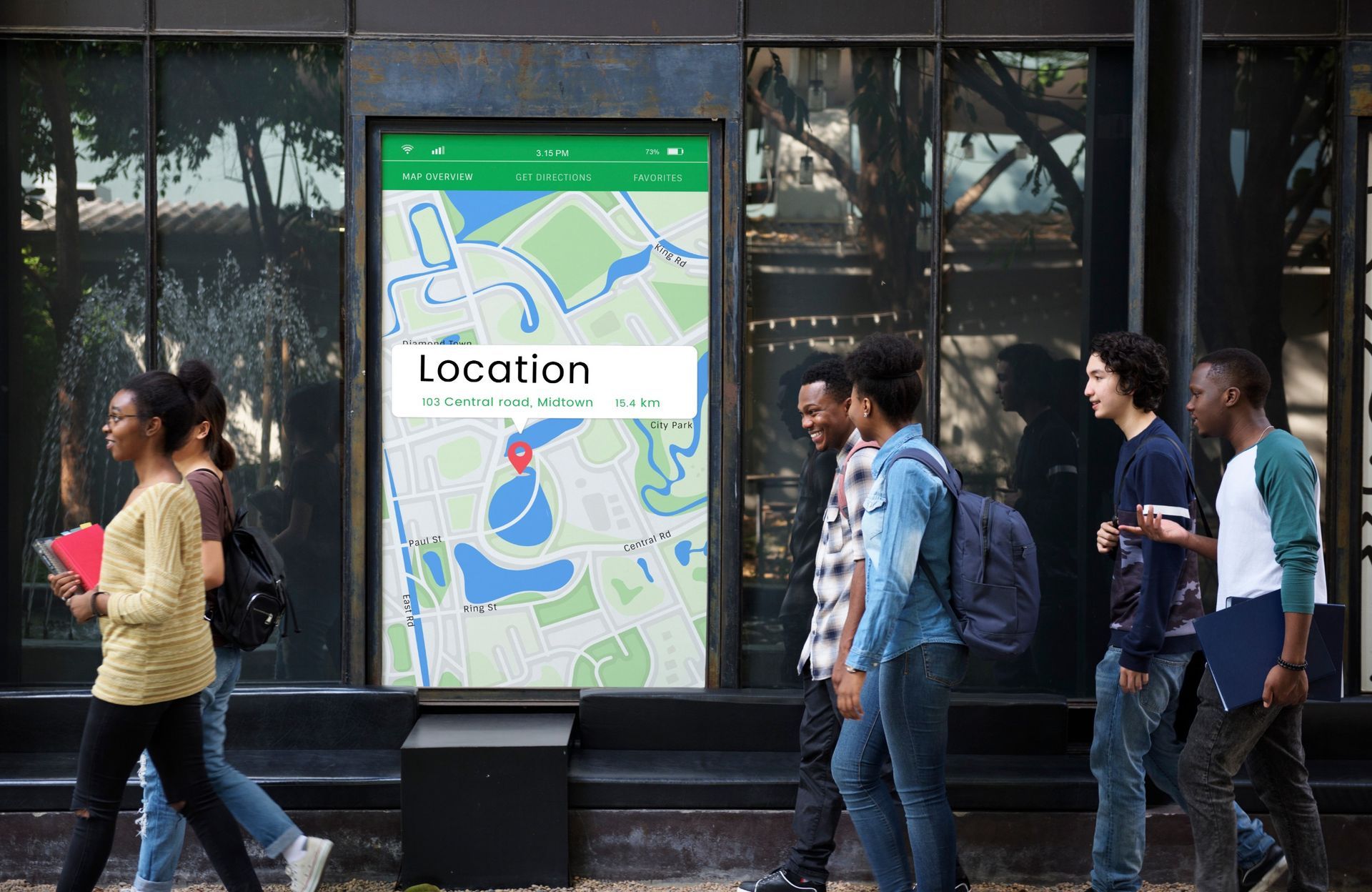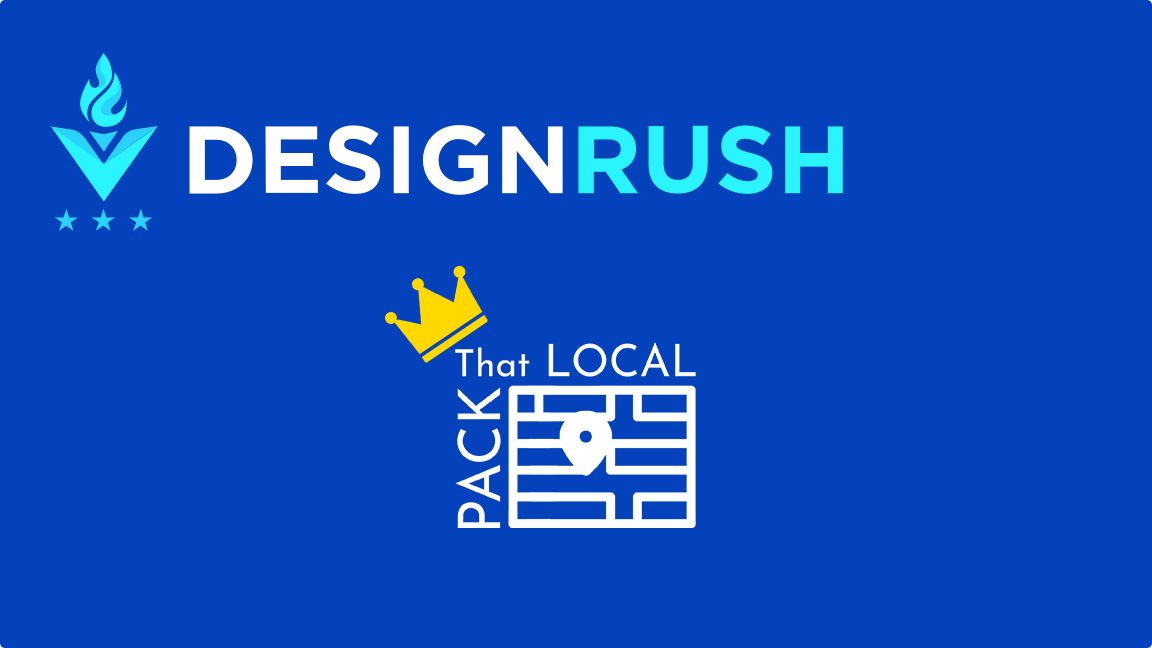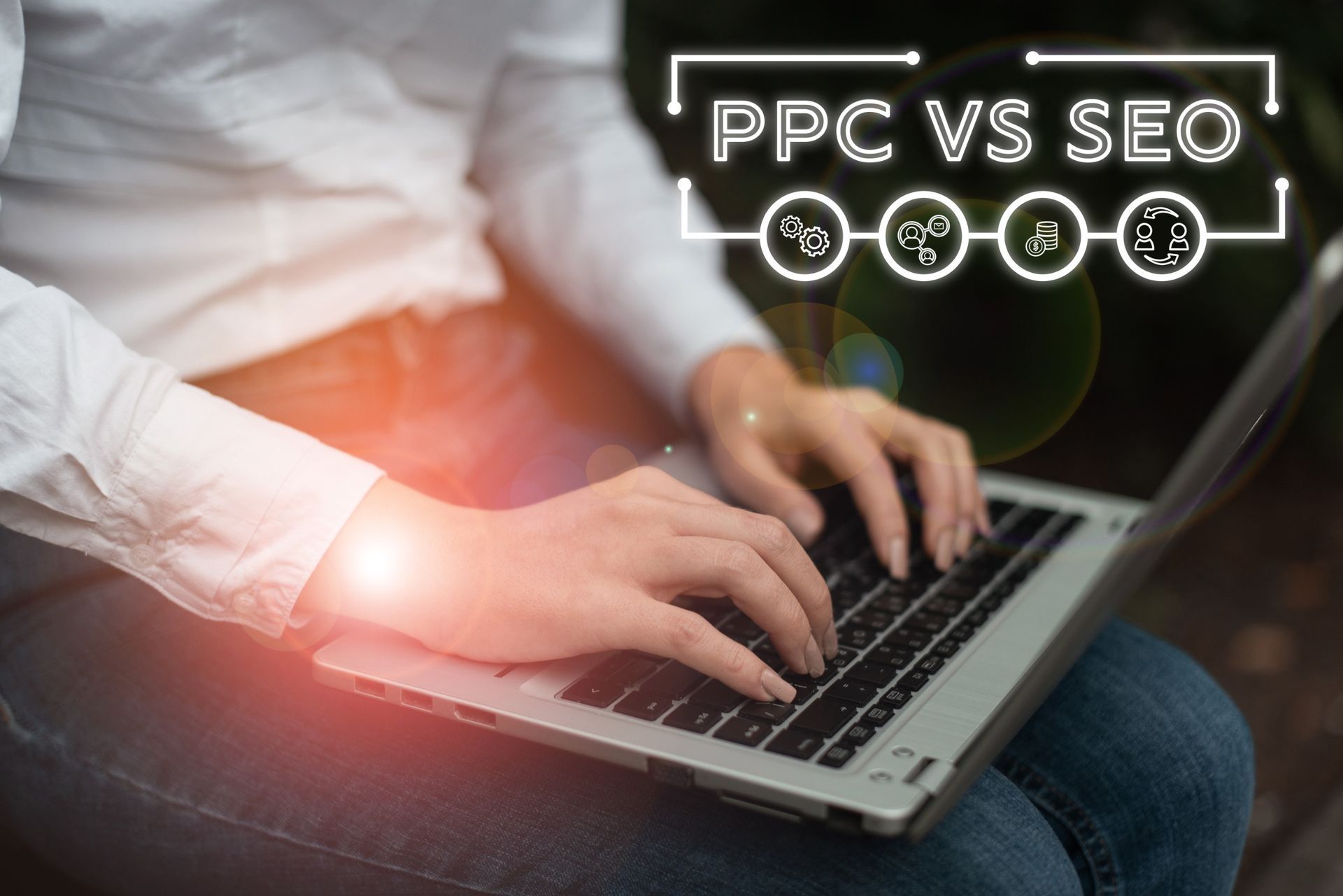SEO or Local SEO - What's the Difference?
SEO or Local SEO - What's the Difference?
Are you a local service provider feeling lost in the digital maze, wondering how to make your business stand out among the giants?
You've probably heard of SEO (Search Engine Optimization) as the magical realm where keywords and links make your business soar—or sink—in Google's search results. But did you know there's a more focused, powerful version of SEO tailored just for businesses like yours? Welcome to the world of Local SEO, a game-changer for local businesses striving to make a mark in their communities.
In today's digital era, it's not enough to simply have a website or a physical store; you need to be easily discoverable by potential customers searching for services "near me" or in your locality. But here's the catch—regular SEO and Local SEO are not the same beast. One targets a global audience, while the other zeroes in on local consumers. Understanding the nuances between the two could mean the difference between a phone that won't stop ringing and one that hardly rings at all.
So, buckle up as we dive deep into SEO vs Local SEO, breaking down the jargon into digestible bits and offering actionable tips. Whether you're a seasoned business owner or just getting your feet wet, this guide aims to answer that burning question: Which one do I really need—SEO or Local SEO?
What is Regular SEO?
Regular SEO is like putting up a big billboard on a busy, online highway: lots of people from all over the country (and world) see it, but not all of them will visit your local shop or call you for local services. It helps your website show up in online searches, but not just for people in your area.
Google has the ability in this day and age to understand the nature of your online content and recommend it to the right audience, whether they be local or on the other side of the world. Regular (or national) SEO cares little about whether your online visitor is next door, the next city/state over, or the other side of the continent. All that matters is if your content, information, products, or services matter to them.
Anatomy of a Search Engine Results Page (SERP) for Regular SEO
- Search Query Box. At the top, you'll find the search query box where you initially entered your search term. Google might also offer to "auto-complete" your query as you type, based on popular or trending searches.
- Google Ads (Top). Right below or sometimes above the search box, you may see advertisements. These are often labeled as "Ad" to distinguish them from organic search results. Companies pay to have their pages appear here.
- Featured Snippet. Not all searches will have this, but some queries trigger a "Featured Snippet," a box that contains a quick answer or summary to your question, extracted from a webpage. This is highly coveted real estate in SEO.
- Organic Search Results. These are the web pages that Google's algorithm has determined are the most relevant to your search. Unlike ads, these results are not paid for and appear based on their relevance and quality.
- "People Also Ask" Box. This section contains related questions that other people have asked, along with their answers, which can be expanded by clicking on them.
- Image and Video Results. Depending on your search query, you may also see image or video results embedded within the organic search results or gathered in a separate tab.
- Local Pack. Even in regular SEO, you may sometimes see a "Local Pack" featuring local businesses related to your query. However, this is more common in Local SEO searches. We'll dive more into this piece when we discuss local SEO below.
- News Box. For trending or newsworthy topics, a box with news articles may appear.
- Related Searches. At the bottom of the SERP, you'll see suggestions for related searches that you can click on to explore the topic further.
- Google Ads (Bottom). Sometimes additional ads appear at the bottom of the search results page, also clearly marked as "Ad."
What All is Required for Good National SEO?
To make your business show up in online searches all over the country, you have to do a bunch of things that you might not need to worry about as a local service provider. First off, you have to think about what words people everywhere would use to find your services, not just folks in your neighborhood. You'd write articles and blog posts that appeal to people in different states, which is a whole different ballgame compared to writing for your local community.
The technical side matters too, but it's a lot more involved. You'd need to set up your website in a way that it tells Google and other search engines exactly what each page is about. That's more than just mentioning your business name and what you do; it's about making it clear to the entire internet.
Links from other websites to yours are super important. But we're talking about getting nods from big, national websites, not just your local newspaper or community blog. It's like needing endorsements from celebrities instead of just satisfied customers down the street.
Your website has to work like a charm on all devices, be it a smartphone or a computer. And it's not just about the local crowd sharing your Facebook or Twitter posts; you'd want people from all over the country to engage with your social media.
Then comes the part where you keep track of how well you're doing, but on a much larger scale. You're not just looking at whether folks around town are finding you; you're tracking clicks and visits from different states or even countries. And you'll likely have to adjust things frequently based on that data.
In a nutshell, national SEO is like running a nationwide advertising campaign compared to putting up flyers in your local grocery store. It's a lot more work and something you probably don't need to sweat about if your customers are mainly local.
Who Needs This Most & Why?
The following people and businesses are those most likely candidates for regular or national SEO strategies:
- E-Commerce Websites: Businesses that sell products online to a national or international audience.
- Software Companies: Firms offering digital products or services that can be distributed globally without geographical limitations.
- Digital Content Creators: Bloggers, vloggers, podcasters who aim for a wider reach rather than focusing on a local audience.
- Educational Platforms: Online learning and training providers that offer courses to students all around the country or world.
- National or International Service Providers: Businesses like consulting firms or agencies that offer services which can be performed remotely or are not dependent on a physical location.
- Travel and Hospitality: Airlines, nationwide hotel chains, and online travel agencies that target customers across multiple locations.
- Publishers and Media Houses: Outlets that produce news, entertainment, or informational content aimed at a national or international audience.
- Manufacturers and Distributors: Companies that produce goods for national distribution, rather than serving a local or regional market.
- Financial Institutions: Banks, investment firms, or fintech companies offering services to customers regardless of location.
- Franchise Owners: Those who own multiple locations across different cities or states and want a unified online strategy.
- Online Marketplaces: Platforms where various goods or services are bought and sold across wide geographies.
- Affiliate Marketers: Individuals or companies promoting products for other businesses and earning a commission based on national or international sales.
- Influencers: Social media personalities aiming to reach and collaborate with a broader audience and brands.
- Professional Speakers and Authors: Those whose work and brand are not tied to a specific location and who are targeting a national or global audience.
- Medical or Legal Professionals: While often local, if they specialize in very rare services, these professionals might aim for a broader geographical appeal to attract patients or clients from across the country.
For businesses and individuals targeting a national or international audience, regular SEO is often the more suitable choice over local SEO. Unlike a neighborhood cafe or a local plumber whose services are confined to a particular geographic area, these entities aim to cast a much wider net. E-commerce platforms, digital service providers, and online educators, for example, aren't bound by physical location; their potential customers could be anywhere. Hence, their SEO strategies must be expansive and broad-ranging to capture attention from a diverse audience spread across different states or even countries.
Similarly, national media houses, software companies, and major retail chains need to rank for search terms that are universally applicable, rather than locality-specific. For such businesses, showing up in the local "3-pack" on Google—the top three local business listings—is less relevant than appearing in the organic search results that have nationwide reach. Moreover, businesses operating at this scale are often competing with other major players with a national presence. To stand out, they must invest in strategies that will improve their visibility on a larger stage, from targeting high-volume keywords to securing backlinks from major websites.
Finally, for influencers, professional speakers, or experts in a specialized field, the aim is often to establish authority or brand recognition on a subject matter that has national or global interest. For them, the goal isn't just to attract attention from people nearby but to become a go-to resource for anyone, anywhere interested in their field of expertise. In short, regular SEO is about making your mark in a crowded, expansive marketplace, rather than carving out a niche in a specific locality.
What is Local SEO?
Local SEO is the practice of optimizing your business's online presence so that it shows up in search results when people nearby are looking for the services or products you offer.
Unlike regular SEO, which aims for a broad, national audience, local SEO focuses on attracting customers in your specific area. This is especially useful for small businesses like cleaners, plumbers, or retail stores that rely on local customers. By fine-tuning your website and online listings, local SEO helps ensure that when someone in your area searches for something you offer, your business pops up as one of the top local options.
Anatomy of a Search Engine Results Page (SERP) for Local SEO
- Paid Ads. These are usually the first few listings you'll see. Businesses pay to be here. The ads may or may not be from local companies, but often they are tailored to your location.
- Local Map "3-Pack". This is a big one for local businesses. It's a small map that shows the location of businesses near you that match your search. Under the map, there are usually three business listings with important details like the address, hours of operation, and customer reviews. If you're a local business, this is prime real estate you'll want to be in.
- Organic Results. Below the map and its listings, you'll find the "regular" search results. These may include websites, news stories, or even more business listings. For local businesses, this is another good spot to appear in.
- "People Also Ask" Box. Sometimes, you'll see a section with commonly asked questions related to your search. This can include both national and local information.
- Images and Videos. Depending on what you searched for, you might see a row of images or videos near the top or middle of the page. These could be from local businesses or from anywhere else.
- Review Sites and Directories. Often, websites like Yelp or TripAdvisor that aggregate customer reviews will show up in local SERPs. Google will most certainly do this in the Local Map Pack. These can be crucial for local businesses because many people check reviews before making a choice.
- Sidebar Information. On the right-hand side, you might see a detailed business listing for a specific company. This includes a lot of the same info that's in the Local Map "3-Pack," but it's for just one business. Usually, this sidebar shows up if you search for a business by name.
What All is Required for Good Local SEO
For great local SEO, you'll want to start by making sure your business information is correct and consistent everywhere it appears online, like your website, social media, and online directories such as Google My Business, or Google Business Profile.
Speaking of Google My Business, make sure you claim, verify, and fully complete your profile there, adding photos, hours, and other details. Customer reviews are huge, so encourage satisfied customers to leave positive reviews on Google and other review sites. On your website, include the areas you serve and local keywords—terms people might use when looking for your services near them.
You'll also want to focus on your website itself. Make it fast and easy to use, especially on mobile phones, as many people search for local services while they're out and about. It's also a good idea to regularly add new, useful content that answers common questions people have about your industry or services. This can be through a blog, FAQ page, or even video tutorials.
Lastly, try to get other local businesses or newspapers to link to your website. Think of these as personal recommendations that Google takes seriously. All these steps together will make your business more visible when people nearby are searching for what you offer.
Who Needs This Most & Why?
If your business falls under one of the categories below, you're going to want to take local SEO seriously to stay ahead of the competition.
- Residential & Commercial Cleaners: Companies and crews providing cleaning and sanitation services to homes and businesses.
- Plumbers: Professionals who offer plumbing services within a specific area, usually within a radius of their headquarters.
- Electricians: Service providers who perform electrical repairs and installations locally.
- Handyman Services: Individuals or companies offering a range of home repair services like furniture assembly, minor electrical fixes, and more.
- Landscaping Companies: Businesses providing lawn care, tree cutting, and garden maintenance services within a community.
- Construction Contractors: Firms specializing in residential or commercial construction projects in local areas.
- Roofers: Companies providing roofing repairs, installations, and maintenance for homes or businesses in a specific locale.
- Automotive Repair Shops: Mechanics and auto shops offering vehicle repairs and maintenance services.
- Local Movers: Companies offering moving and packing services within a limited geographic range.
- Painters: Professionals who provide interior or exterior painting services for homes and businesses in a localized region.
- Carpet Cleaners: Businesses offering carpet and upholstery cleaning services to residences and commercial spaces in a particular area.
- Pest Control Services: Companies offering insect and rodent control solutions for homes and businesses within a specific geographic scope.
- Window Cleaners: Services specializing in residential and commercial window cleaning within a community.
- Pool Maintenance: Companies providing regular pool cleaning and maintenance, usually on a contract basis, for local residences and commercial spaces.
- Locksmiths: Professionals offering lock-related services, usually available for quick local dispatch.
- HVAC Services: Companies offering heating, ventilation, and air conditioning services to local residences and businesses.
- Local Restaurants & Cafes: Places to eat that are unique to a specific location and primarily serve the local population.
- Retail Stores: Local shops selling products like clothing, electronics, or books, relying mostly on foot traffic.
- Local Health Providers: Dentists, doctors, chiropractors, and therapists who see patients in a specific area.
- Real Estate Agents: Professionals helping with home buying and selling within particular neighborhoods or cities.
- Local Gyms & Yoga Studios: Fitness centers that cater to residents in nearby areas.
- Pet Services: Local dog walkers, pet groomers, and veterinarians.
- Local Entertainment: Movie theaters, museums, amusement parks, and other entertainment venues that rely on local and seasonal visitors.
- Lawyers & Legal Services: Professionals who offer specialized legal assistance in specific communities.
- Event Services: Caterers, photographers, and planners focusing on events in a particular geographic location.
- Community & Non-profit Organizations: Local charities, churches, and community centers that serve a localized group of people.
- Beauty Services: Hair salons, nail salons, and spas catering to local clients.
Key Differences Between Regular & Local SEO
| Component | Regular/National SEO | Local SEO |
|---|---|---|
| Target Audience | Global or national audience | Local audience, typically within a specific geographic area |
| Keyword Strategy | Broader, may not always include local-specific terms | Focuses on local keywords like "[Service] near me" or "[Service] in [City]" |
| Type of Content | Blog posts, how-to guides, whitepapers, webinars, general web pages | Localized content, service pages, location-based landing pages |
| Backlinks | From diverse domains, more emphasis on high domain authority | Importance on local citations and backlinks from local businesses |
| On-page Elements | Meta descriptions, H1, H2 tags, etc. | NAP (Name, Address, Phone Number), local schema markup |
| Off-page Strategy | General social media marketing, guest posting, link building | Local directories, Google My Business, Yelp, and other local listings |
| Ranking Factors | Domain authority, page authority, content relevance, backlinks, user behavior | Local citations, customer reviews, Google My Business optimization, local keyword relevance |
| User Intent | Informational, transactional, navigational, commercial | Strong emphasis on transactional and navigational |
| Metrics for Success | Global rankings, organic traffic, conversion rate, click-through rate | Local visibility, foot traffic, local rankings, customer reviews |
| Cost and Complexity | Can be more expensive and time-consuming due to broader competition | Generally less expensive and simpler but requires localized knowledge |
Key Similarities Between Regular & Local SEO
| Component | Regular/National SEO | Local SEO |
|---|---|---|
| Goal | Increase online visibility | Increase local online and offline visibility |
| Use of Keywords | Incorporate target keywords in content | Incorporate local and target keywords in content |
| Content Quality | High-quality, relevant, and updated content | High-quality, relevant, and localized content |
| On-page Optimization | Title tags, meta descriptions, header tags, etc. | Same elements, along with NAP and localized tags |
| Mobile Optimization | Important for rankings and user experience | Equally critical, especially for "near me" searches |
| User Experience | Site speed, navigation, mobile-friendliness | Same, with added emphasis on local information |
| SEO Tools | Google Analytics, SEMrush, Moz, etc. | Same tools, along with localized tools like Google My Business |
| SEO Best Practices | Clean URL structure, HTTPS, XML sitemaps | Same, with added focus on local SEO elements like citations |
| Conversion Tracking | Track conversions through forms, clicks, etc. | Same, with additional metrics like foot traffic |
| Ongoing Maintenance | Requires regular updates, backlink efforts, content refresh | Requires regular updates, local citation maintenance, customer review management |
Why Local Service Providers Should Prioritize Local SEO
For local service providers like plumbers, cleaners, electricians, and landscapers, local SEO is crucial because their business is inherently local. Their services are performed on-site, usually within a limited geographic area.
When a homeowner has a burst pipe or a business needs electrical work, they often turn to search engines to find providers "near me." Being visible in those local search results can be the difference between getting that call or missing out on business.
Moreover, local SEO helps these businesses appear in local directories and map listings, further increasing their visibility to potential customers in their area. Positive online reviews, a key aspect of local SEO, can also greatly influence a customer's decision to choose one service provider over another. In short, local SEO is not just an option for these businesses; it's a necessity for staying competitive in their local markets.
What Results Should You Expect?
Nearly half of businesses that invest in local SEO see a 500% ROI or higher, according to sources at LocalIQ, Neil Patel, TeraKeet, & Demand Jump.
If you're a business owner considering an investment in SEO, be prepared for a marathon, not a sprint. Unlike paid advertising, which stops the moment you stop paying, SEO is a long-term investment that can yield sustainable returns.
Expect to spend at least 3 to 6 months before seeing noticeable improvements in search rankings and organic traffic. However, once you do rank, you often continue to reap the benefits without additional cost. Unlike ads, you're not paying for each visitor who comes to your site through organic search, making it a more cost-effective way to attract business in the long run.
That said, SEO is not a "set it and forget it" endeavor. Search algorithms change, and competitors are also optimizing their sites. Ongoing efforts like content creation, website updates, and quality link-building are essential for maintaining and improving your rankings. But the payoff can be substantial: better visibility, more credibility, and a steady stream of potential customers who are actively looking for the services or products you offer.
Think of SEO as building equity in your business; the time and money you invest now can pay off exponentially in the long term, making it a smarter, more sustainable option than continuously funneling money into ads.
How Much Does Local SEO Cost?
For local business owners, investing in Local SEO is crucial, but it's important to manage expectations about both time and cost. Local SEO is generally more cost-effective than broad, national SEO, but it still requires consistent effort and investment.
Time Investment
Expect to invest a few months to start seeing significant changes. For the first 1-2 months, the focus will likely be on setting up or optimizing your Google My Business account, making sure your NAP (Name, Address, Phone Number) information is consistent across the web, and optimizing your website for local keywords. The next phase will involve more ongoing efforts, like gathering reviews, creating local content, and building local backlinks. Plan to spend at least 10-20 hours a week on these activities, especially in the beginning.
Financial Investment
Costs can vary widely depending on your location, competition, and scope of your business, but many small businesses spend between $500 to $5000 per month on local SEO services. If you're doing it yourself, you'll need to factor in your time cost or the cost of hiring an in-house team member to manage these tasks. Also consider indirect costs like software tools for keyword research, local SEO tracking, and content creation.
The Payoff
Once you've invested in local SEO, the payoff can be significant. Unlike paid ads that disappear as soon as you stop paying for them, a solid local SEO strategy can provide long-term visibility and traffic. You'll become a go-to local provider in your field, which can significantly increase your customer base and revenues.
Investing in local SEO isn't just about spending money; it's about investing in the future sustainability and success of your business.
What It Takes to Get Started With Local SEO
Getting started with great local SEO involves a few key steps, but don't be surprised if it feels like a lot to manage—this is a job many businesses hire experts to do for a reason. First, claim your Google My Business listing and fill it out completely, adding photos, hours, and services offered. Next, make sure your business name, address, and phone number are the same everywhere they appear online. You'll also want to add your location and service-related keywords to your website, especially in titles and headings.
Words like "schema," "metadata," and "alt tags" might sound intimidating, but they're crucial for really nailing your local SEO strategy. Schema is a code that you put on your website to help search engines provide more informative results for users. For example, schema can help Google know that a string of numbers is your phone number, so it shows up correctly in search results. Metadata, including meta descriptions and title tags, are the snippets of text that appear in search results to describe your webpage. They should be concise, relevant, and include local keywords to improve your site's visibility. Alt tags are descriptive text you add to images on your site, improving accessibility and giving search engines more context for indexing your site.
These technical aspects can get complex and require a level of expertise, which is why many businesses opt to bring in an SEO specialist to handle them. Doing so ensures that all the gears in your SEO machine are working in harmony, making your business more easily discoverable for local customers.
Customer reviews are like gold, so encourage your satisfied customers to leave positive reviews on Google and other review sites.
Now, onto your website: make sure it's fast and looks good on mobile devices, as many people will search for services on the go. You should also consider writing blog posts or articles that answer common questions people have about your industry; this can help your site show up in search results and establish you as an expert.
And don't forget about links—try to get other local businesses or newspapers to link to your website. All these things can help you appear in local search results when people nearby are looking for the services you offer. But doing it right takes time, attention to detail, and ongoing effort, which is why many businesses opt for professional help.
Final Thoughts
Navigating the online landscape can feel like wandering through a labyrinth, especially when you're a local service provider competing against big names. But as we've unraveled in this guide, Local SEO is your secret weapon—a targeted approach designed to elevate your visibility exactly where it matters most: in your community. From claiming your Google My Business listing to harnessing the power of local keywords and reviews, these strategies work in concert to put your business on the local map.
While regular SEO has its merits, it's like using a sledgehammer when a chisel will do. Local SEO allows you to carve out your own niche, connecting you with customers who are not just searching for what you offer, but where you offer it. So why blend in when you can stand out? Embrace Local SEO, and turn those local searches into local sales.
